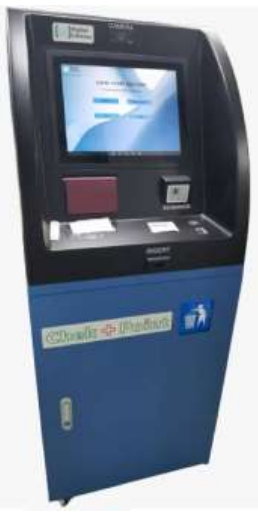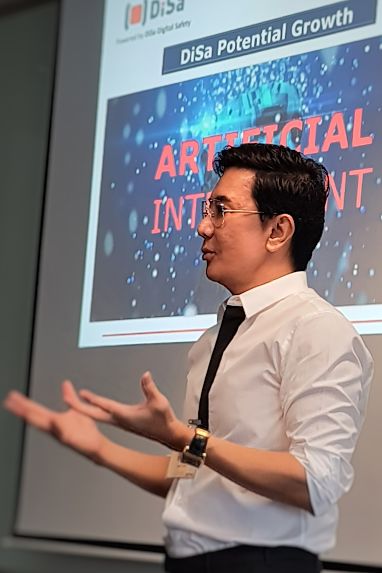| In Dec 2021, news broke about a breakthrough in the use of Antigen Rapid Test (ART) by top Singapore institutions -- SingHealth Duke-NUS Academic Medical Centre and the National University of Singapore. Their tests is saliva-based, and are said to have accuracy rates matching that of the gold standard, PCR tests. To commercialise the invention, Singapore-based Digital Life Line Pte. Ltd. signed agreement with the co-developers for rights to manufacture and distribute the new kits. DLL is a 40% owned associate company of DiSa Digital Safety Pte. Ltd., whose parent is Singapore-listed DISA Limited. |
Following on that, Disa Digital Safety Pte. Ltd. today announced that it has signed proof of concept agreements, through DLL, with two large Singapore based private healthcare service providers to test the scalability of its patent pending Automated ART System.
Disa has explained how the Automated Machine, which is envisaged to be deployed in high-traffic locations such as airports and stadiums and schools, is key to the new testing regime:
 • Users self-register by scanning their NRIC or passport at the kiosk (photo). • Users self-register by scanning their NRIC or passport at the kiosk (photo). • Users then scan the unique QR code on the ART kit on the Automated Machine to uniquely tag the ART kit to the user for track and trace purposes. • Users perform the test in front of the Automated Machine in accordance to the test steps illustrated on the screen of the Automated Machine. • Users finally insert the ART cassette into the Automated Machine and leave without having to wait for the test result. The entire process is video recorded and takes no more than 5 minutes for each user. |
The Automated Machine will take a photo of the ART cassette and the results are sent automatically and digitally to the rightful owners within 15 to 20 minutes after the test is completed.
 “Through partnerships with the healthcare service providers, we hope to expand this automation system regionally. The automated system can be used for any type of lateral flow point of care and not limited to only COVID-19.” -- Eddie Chng, Managing Director and CEO of DLL. |
Each Automated Machine can handle about 10 to 15 tests per hour, operating for 24 hours a day. With the use of the Automated Machine, ART tests can be processed faster. Video recording guarantees the authenticity of the tests.
Most importantly, all the ART test results cannot be tampered with as the ART cassette will have to be inserted into the Automated Machine before the result appears.
The Automated Machine hastens the entire ART process and overcome the shortage of manpower.
The digitalisation will also help to cope with the increasing ART tests volume in view of the fast spreading Omicron variant.
The Automated Machine can be deployed at dormitories, MICE, airports, train stations, hotels, schools, stadiums etc.
“Through partnerships with the healthcare service providers, we hope to expand this automation system regionally. The automated system can be used for any type of lateral flow point of care and not limited to only COVID-19”, said Mr Eddie Chng, the Managing Director and CEO of DLL.
The kit, known as Parallel Amplified Saliva rapid POint-of-caRe Test (PASPORT), uses nanoparticles to bind the virus and uniquely. It also adds as a second type of nanoparticle that binds the first set of nanoparticles to amplify the signal. This makes testing using PASPORT more sensitive at finding and flagging the virus and allows it to be used at any time of the day, where the sensitivity of the test is not compromised even after eating or drinking. Compared to other ART, amplification enables PASPORT to be extremely sensitive. In a clinical study involving over 100 participants conducted at the Singapore General Hospital, PASPORT’s sensitivity in detecting the virus was 97% and its specificity at 90.6%, compared to the gold standard PCR test. The invention was reviewed and published by Microchimica Acta* in November 2021. |







